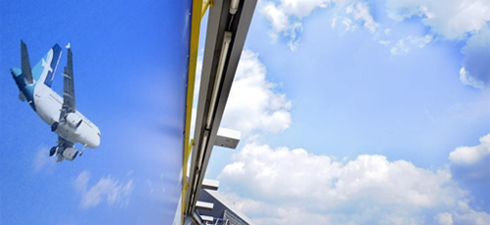The news in Europe is increasingly dominated by clouds and fog. As Lidové noviny remarks, "the strange fog over the forest of Katyn has been followed by an even more bizarre cloud of volcanic ash." At the funeral of Polish President Lech Kaczynski and his wife on 18 April in Cracow, "the list of heads of state who were expected to attend quickly turned" into what Luboš Palata, editor of Czech daily, has dubbed "a no-show list." The ceremony, which was supposed to bring together political leaders from across the Union was transformed into "an Eastern European burial with just one star: Russian President Dimitri Medvedev."
"Yet again," the Icelandic cloud has divided the continent in two. And this time around, it is clearly more than an act of God," complains Palata. Austrian President Heinz Fischer "who only had to make a relatively short road journey to reach Cracow" opted to stay away, while Romanian President Traian Basescu traveled more than 1,000 kilometres by car to pay his respects — a feat only outdone by his Georgian counterpart Mikhail Saakashvili, who hired a small plane in the US to circumvent the volcanic cloud.
Terrestrial transport inadequate
This marked difference in the behaviour of political leaders is a reflection of a more concrete problem raised in the columns of Estonian daily Postimees by European Commission Vice-President responsible for Transport, Siim Kallas. "The interruption of air services has highlighted the inadequacy of terrestrial transport infrastructure within Europe," explains Hendrik Hololei, who notes that "as it stands, insufficiently developed terrestrial transport from Eastern to Western Europe is effectively limiting the free movement of goods and people. For proof of this fact, you only have to consider the situation of NATO and European Union member Estonia — a state that is already included in the Schengen area and likely to become a member of euro zone in the near future — which is still dependent on Russian rail and energy distribution infrastructure."
Noting that a number of previous European Commissioners for Transport have attempted to improve links with external countries, particularly in Africa, Hololei argues for a more down-to-earth approach that would make internal European problems the priority.
EU must mobilise
However in the short term, Northern and Southern Europe have also been separated by the Icelandic ash cloud — a fact that has prompted Denis MacShane to call on the EU to mobilize to provide assistance to its citizens. Writing in the columns of The Independent, the former Blair cabinet minister of state for Europe insists that "the EU representation offices must leave their comfortable capital city bureaux and go to where EU citizens need help. Local university students who speak the foreign languages of stranded citizens can travel to help monolingual people. Military and naval forces must be mobilised to arrive in remoter areas of the EU like the Canary Island where thousands of German, British, Dutch and Nordic holidaymakers are isolated."
MacShane adds that "if air flights continue to be suspended the EU should commandeer train and coach services to maintain links between the north and south of the continent. Flights from north and south America have to be diverted to Barcelona and Milan with special trains to take people, goods and letters to the north. Autoroutes should be cleared to allow special convoys to maintain contact."
Was this article useful? If so we are delighted!
It is freely available because we believe that the right to free and independent information is essential for democracy. But this right is not guaranteed forever, and independence comes at a cost. We need your support in order to continue publishing independent, multilingual news for all Europeans.
Discover our subscription offers and their exclusive benefits and become a member of our community now!












